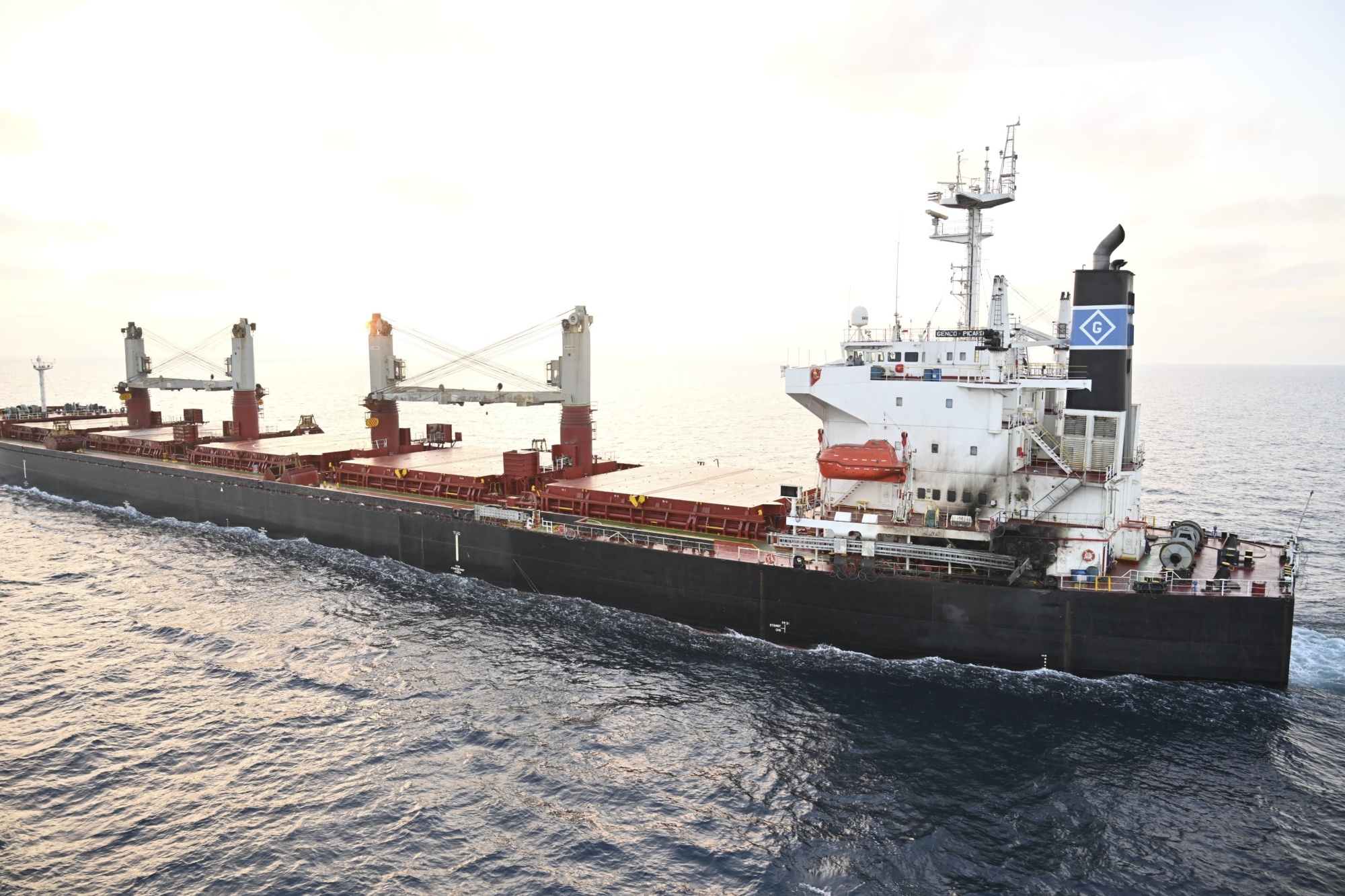Yemen’s Houthi rebels have claimed responsibility for multiple attacks targeting international shipping and military vessels, escalating tensions in the region. The group asserted responsibility for an assault on a UK-owned cargo ship and a drone strike on an American destroyer. Additionally, they launched ballistic missiles and drones toward Israel’s port city of Eilat.
Houthi leader Abdul Malik al-Houthi announced an intensified campaign, including the use of new “submarine weapons,” mirroring Israel’s actions in Gaza. These attacks disrupt key maritime routes like the Red Sea and Bab al-Mandab Strait, significantly impacting global trade.
In response, the Houthis issued formal notices banning vessels linked to Israel, the US, and the UK from sailing in surrounding waters. This move aims to coerce shipping companies into cooperating with Houthi demands for safety assurances.
Despite these developments, the insurance industry has not significantly altered rates, as insurers had already restricted coverage due to previous Houthi threats. Marcos Alvarez, of Morningstar DBRS, noted that insurers had priced in the risks associated with the region.

The US military’s Central Command reported intercepting six Houthi drones in the Red Sea, preventing imminent threats to allied warships. Meanwhile, a UK-owned cargo ship, the Islander, was attacked southeast of Aden, though its crew is reportedly safe.
Concerns remain for the UK-registered Rubymar, struck on February 18, as it sits lower in the water. Salvage attempts have been unsuccessful, raising fears of potential sinking.
Amidst these events, Israel’s military intercepted a target in the Red Sea following sirens in Eilat, signaling incoming threats. The situation underscores heightened tensions and risks to maritime security in the region.





